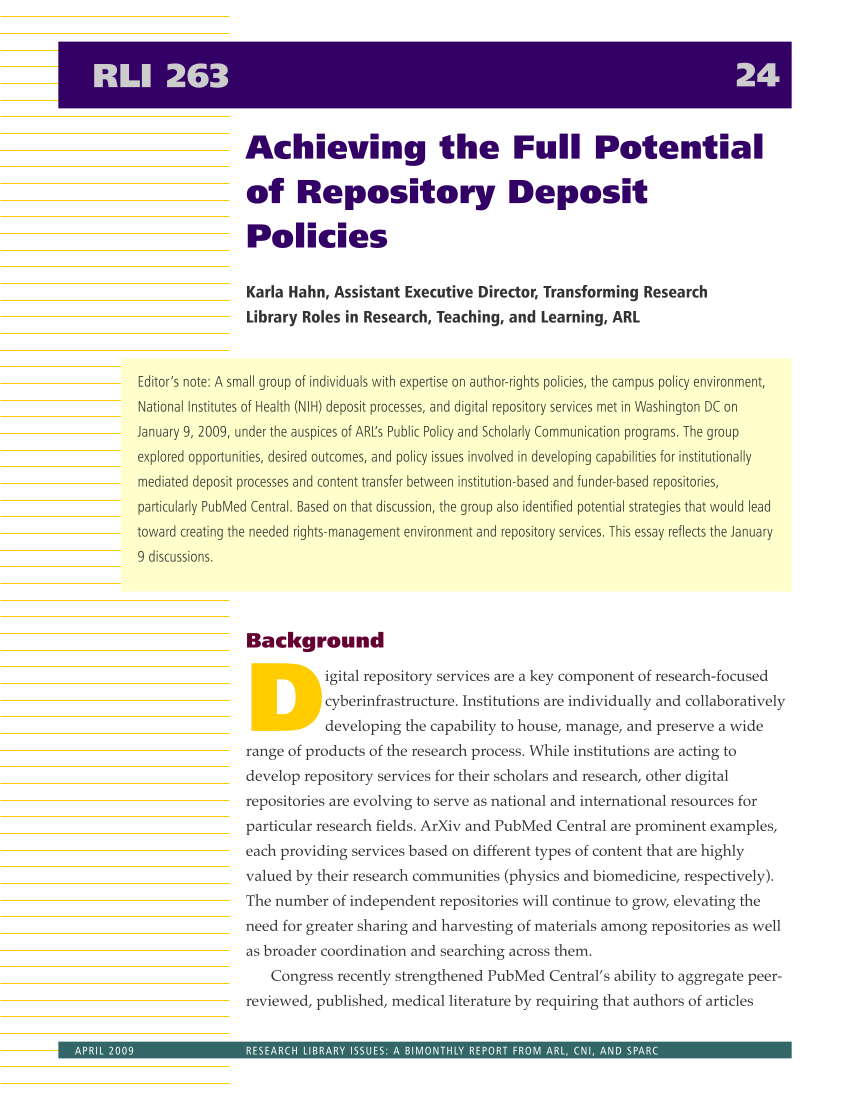Achieving the Full Potential of Repository Deposit Policies Karla Hahn, Assistant Executive Director, Transforming Research Library Roles in Research, Teaching, and Learning, ARL Background D igital repository services are a key component of research-focused cyberinfrastructure. Institutions are individually and collaboratively developing the capability to house, manage, and preserve a wide range of products of the research process. While institutions are acting to develop repository services for their scholars and research, other digital repositories are evolving to serve as national and international resources for particular research fields. ArXiv and PubMed Central are prominent examples, each providing services based on different types of content that are highly valued by their research communities (physics and biomedicine, respectively). The number of independent repositories will continue to grow, elevating the need for greater sharing and harvesting of materials among repositories as well as broader coordination and searching across them. Congress recently strengthened PubMed Central’s ability to aggregate peer- reviewed, published, medical literature by requiring that authors of articles RLI 263 24 APRIL 2009 RESEARCH LIBRARY ISSUES: A BIMONTHLY REPORT FROM ARL, CNI, AND SPARC Editor’s note: A small group of individuals with expertise on author-rights policies, the campus policy environment, National Institutes of Health (NIH) deposit processes, and digital repository services met in Washington DC on January 9, 2009, under the auspices of ARL’s Public Policy and Scholarly Communication programs. The group explored opportunities, desired outcomes, and policy issues involved in developing capabilities for institutionally mediated deposit processes and content transfer between institution-based and funder-based repositories, particularly PubMed Central. Based on that discussion, the group also identified potential strategies that would lead toward creating the needed rights-management environment and repository services. This essay reflects the January 9 discussions.











































